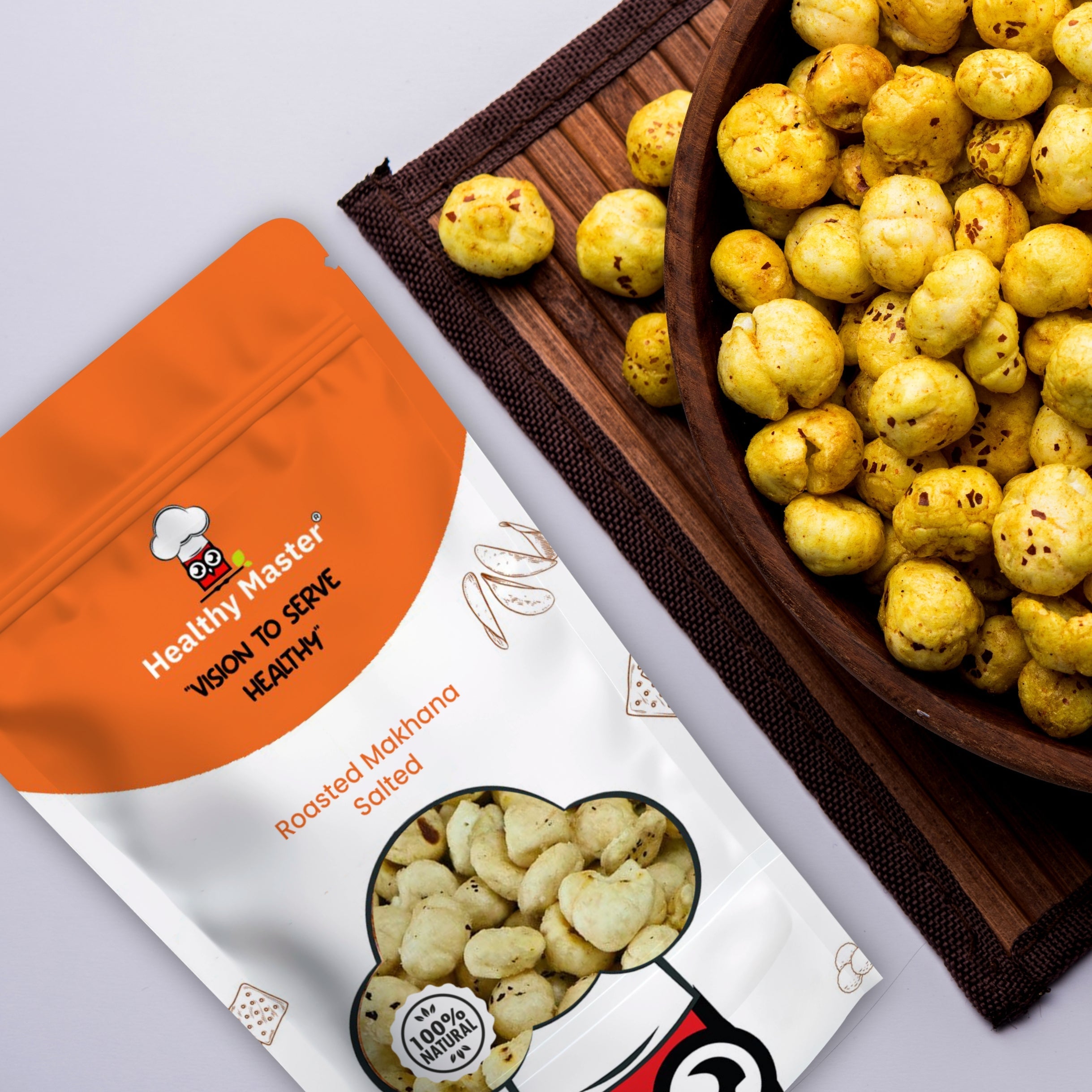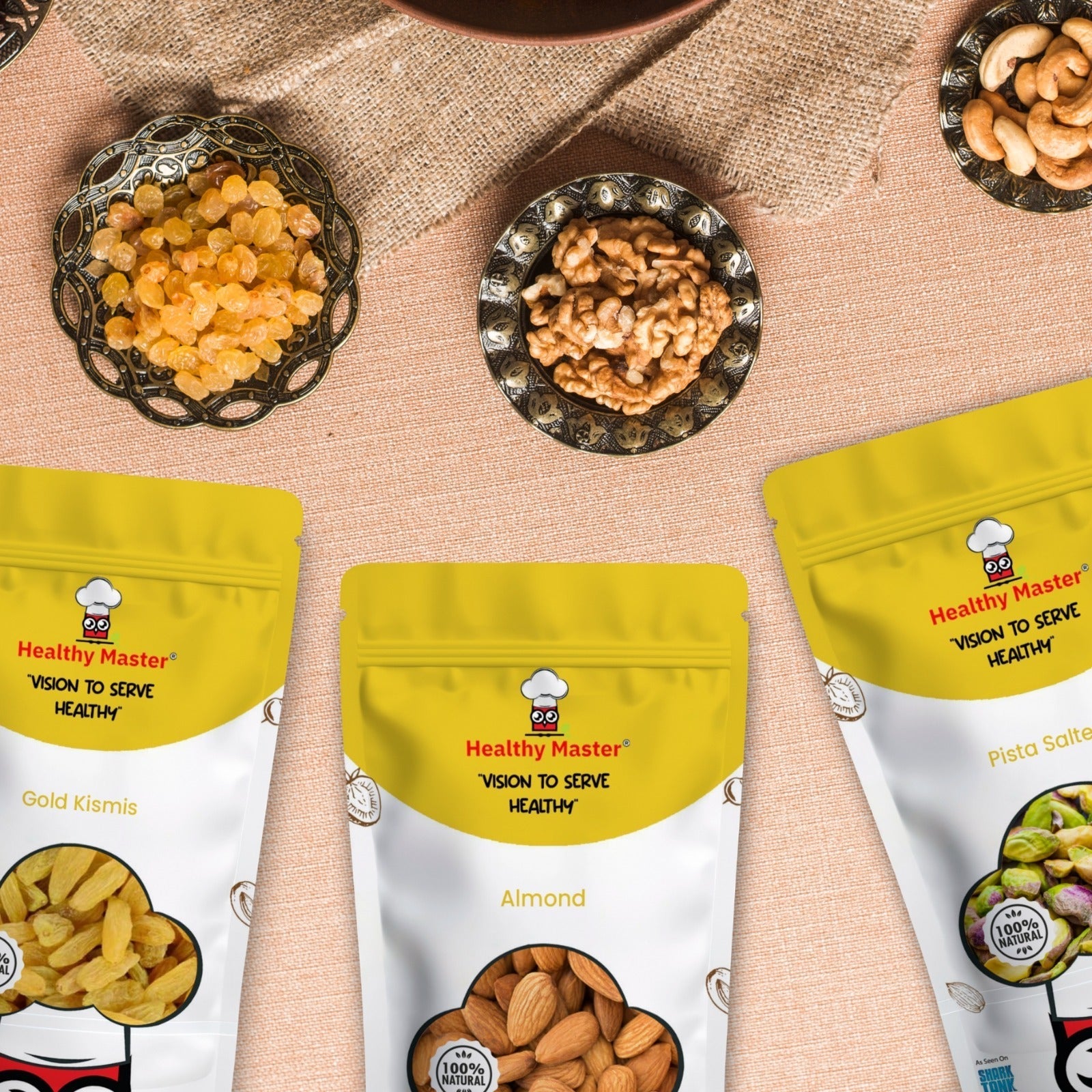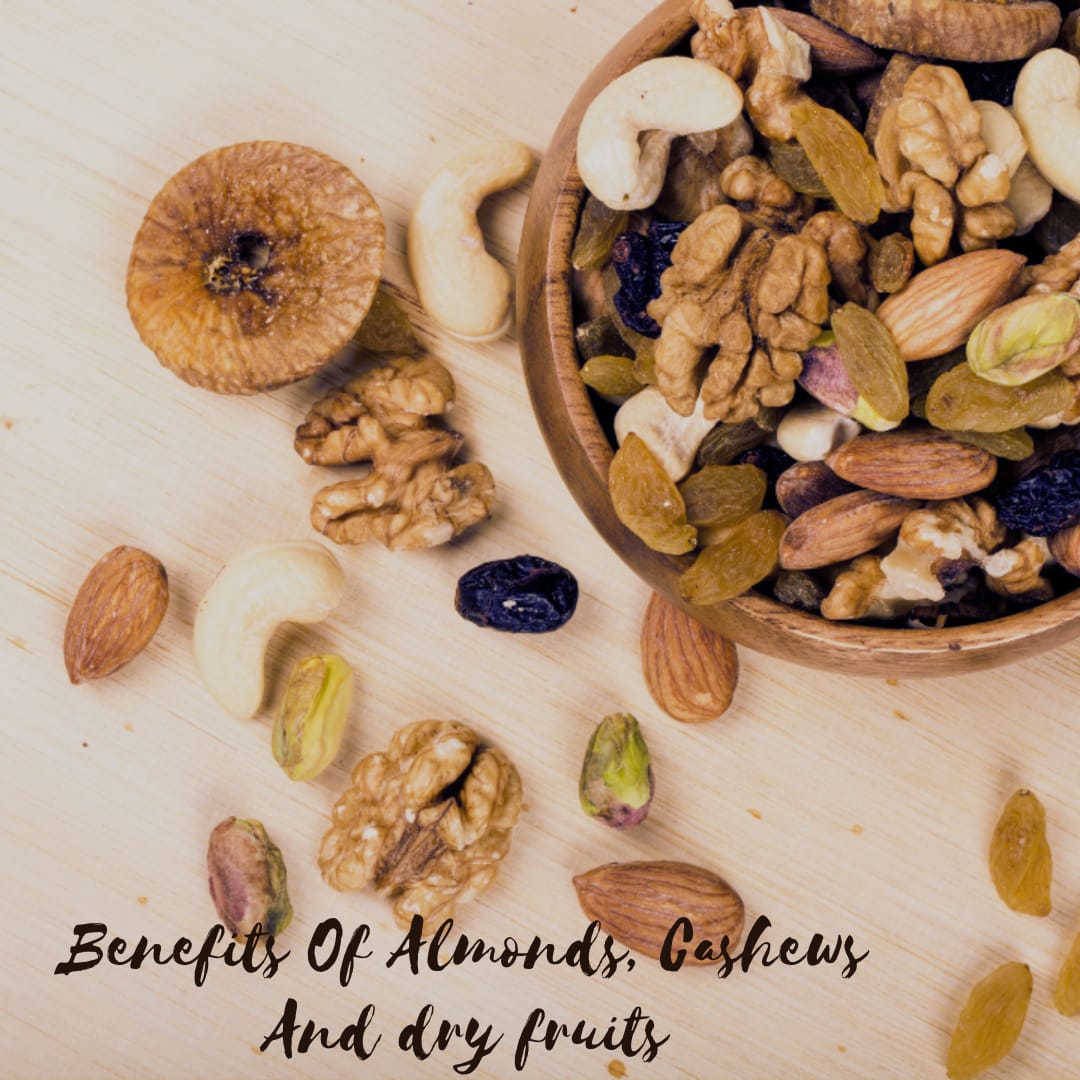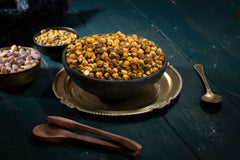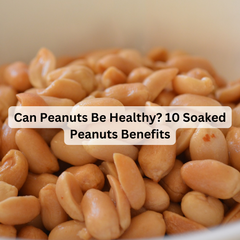Unlocking the Nutritional Treasure Chest: Benefits of Almonds, Cashews, and Dry Fruits
Almonds, Dry Fruits, and Cashews are popular with most people due to their exceptional taste and their being packed with nutrition. These snacks provide a lot of health benefits making them a great choice among individuals.
Often referred to as "nature's powerhouses," almonds are a rich source of important nutrients. They are a great source of fiber, plant-based protein, and heart-healthy monounsaturated fats.
Vitamin E, an antioxidant that promotes skin health and guards against oxidative stress, is abundant in almonds. Additionally, they include important minerals like magnesium and phosphorus, which are critical for bone health and general well-being.
Contrarily, cashews are a nutrient-dense nut renowned for their creamy consistency and mild, slightly sweet flavor. They are an excellent source of monounsaturated fats, which can help lower levels of harmful cholesterol.
Additionally, cashews are a good source of important vitamins and minerals like magnesium, which supports healthy muscle and nerve function, and copper, which is important for supporting strong bones.
There are many different types of dry fruits, such as raisins, apricots, dates, and prunes. The natural sugars in these dried fruits, which are inherently delicious, offer a ton of energy. They are excellent for digestion and general health since they are rich in dietary fiber, vitamins (such as vitamin K in prunes), and minerals (like iron in raisins).
The high antioxidant content of dried fruits is also well known for assisting in the fight against harmful free radicals and lowering the risk of developing chronic illnesses.
Almonds, cashews, and other types of dry fruits are nutritional powerhouses that provide a wide range of health advantages. They can add vital nutrients to your diet, promote heart health, improve digestion, and improve your general well-being.
They are calorie-dense meals, therefore it's crucial to eat them in moderation. A few of these delectable snacks can make a tasty and wholesome addition to your regular routine.
A Deep Dive Into The Health Benefits Of Specific Dry Fruits
1. Almonds
Almonds make for a heart-healthy snack. Monounsaturated fats found in them have been linked to a lower incidence of heart disease. If these fats are included in a balanced diet, they can aid in lowering LDL (bad) cholesterol levels.
Despite having a high-calorie content, almonds can help with weight management. Almonds' blend of fiber, protein, and good fats makes you feel full and pleased and lowers your overall calorie intake.
Almonds are an excellent source of calcium, which is necessary for healthy bones and teeth. They also include magnesium, which supports the health of bones by working with calcium.
Almonds have a low glycemic index, which means their effect on blood sugar levels is negligible. This makes them an ideal snack for those who have diabetes because they help to keep blood sugar levels stable.
Almonds contain the antioxidant vitamin E, which is good for the skin. It helps shield the skin from harm brought on by UV radiation, pollution, and aging. It can lessen the effects of aging and help preserve healthy skin.
2. Cashews
Monounsaturated lipids, which are good for the heart, are found in cashews. By bringing down LDL cholesterol levels, these fats can aid in lowering the risk of heart disease. Cashews also provide magnesium, which helps control blood pressure.
Cashews and almonds both include a lot of protein and fiber. Due to their beneficial effects on promoting fullness and appetite control, they are an important component of weight-loss programs.
Lutein and zeaxanthin, two antioxidants that are essential for eye health, are found in cashews. They can aid in preventing age-associated macular degeneration and other vision issues from affecting the eyes.
Cashews are a good source of copper, a mineral necessary for the synthesis of melanin, the pigment that gives hair and skin their color. Melanin is also responsible for healthy hair and skin. Additionally, copper helps collagen formation, which is necessary for skin suppleness and wound healing.
3. Walnuts
Alpha-linolenic acid (ALA), which makes up a large portion of the omega-3 fatty acids found in walnuts, is particularly important for maintaining brain health. Omega-3 fatty acids are essential for brain function and may lessen the likelihood of cognitive deterioration as people age.
The omega-3 fatty acids in walnuts help to maintain a healthy heart by lowering inflammation and elevating cholesterol. They can reduce triglycerides and cut down on the chance of getting heart disease.
Walnuts are a good source of polyphenols and other antioxidants that fight inflammation and oxidative damage. This could lower the risk of developing chronic illnesses like cancer.
People who suffer from inflammatory diseases like rheumatoid arthritis can benefit from walnuts' anti-inflammatory characteristics. They might assist in discomfort relief and inflammation reduction.
4. Dates
Dates can be used in recipes as a natural sweetener to add sweetness without the use of refined sugars. They are therefore a more healthy choice for sating your sweet desire.
Dates are rich in dietary fiber, which supports a healthy digestive system. They promote regular bowel motions and aid in preventing constipation.
Dates' natural carbohydrates, like fructose, give you a fast energy boost. This makes them a fantastic option for a pre-workout snack or a pick-me-up in the middle of the day.
Dates are rich in nutrients and are nutrient-dense. They are a great source of potassium, which is necessary for maintaining healthy muscular function and controlling blood pressure. They also supply iron, magnesium, and vitamin B6.
Dates include calcium and phosphorus, elements that are essential for keeping healthy bones and teeth. Your diet may benefit your overall bone health if you consume dates.
Overall, A variety of health advantages can be obtained from including these dry fruits in your diet in moderation, but it's crucial to pay attention to portion sizes, especially if you're limiting your calorie consumption.
A wider range of nutrients for general health and well-being can also be obtained by eating a variety of nuts and fruits. Always seek the advice of a medical expert or trained dietitian for individualized dietary advice based on your unique health needs and objectives.
Tips On Incorporating Nuts And Dry Fruits Into Your Daily Diet For Maximum Health Benefits

1. Snacking
Mixed Nuts: Almonds, cashews, and other nuts like walnuts and pistachios should all be included in the mix of nuts you choose. You will receive a wider array of nutrients thanks to this variety.
Trail Mix: Combine almonds, cashews, and a variety of dried fruits to make your own unique trail mix. Add some seeds, such as sunflower or pumpkin, for more texture and nutrition. You can also check out the trail mix offered by Healthy Master.
Nut Butter: Choose organic cashew or almond butter that hasn't had any sugar or hydrogenated oils added. Use it as a dip for banana slices or spread it on whole-grain crackers.
2. Breakfast
Oats: Add chopped almonds or cashews, a drop of honey and a few dried cranberries to your morning bowl of oats. This includes protein, good fats, and unrefined sugar. You can also check out the Oats Chocolate Granola offered by Healthy Master.
Yogurt Parfait: Greek yogurt, chopped almonds, and dried fruit are layered in a parfait of yogurt. For more flavor, add a tiny pinch of cinnamon.
3. Baking
Bread & muffins: When creating bread, muffins, or even cookies, think about incorporating a cup of finely chopped nuts and dried fruits into the recipe. It improves the flavor of your baked goods as well as their nutritious worth.
Granola: Making your own granola is a great way to create a flexible breakfast or snack alternative by combining oats, nuts, and dried fruits. Utilize natural sweeteners like honey or maple syrup to reduce the sugar intake. You can also check out the Nuts And Berry Oats Granola offered by Healthy Master.
4. Salads
Green Salad: Sprinkle some chopped almonds or cashews on top of your salads. Add dried fruit like apricots or figs for an added flavor boost. These ingredients go well with a balsamic vinegar or citrus vinaigrette.
Couscous or Quinoa Salad: Salads made of grains, such as couscous or quinoa, can be given a crunch by adding cashews and dried apricots. The dish is made more fascinating by the difference in textures and flavors.
5. Smoothies
Smoothie with nuts: Add a tablespoon of almond or cashew butter to your standard fruit smoothie. This not only adds creaminess but also boosts the protein level for a drink that is more satiating.
Protein Boost: For more protein, good fats, and a creamy texture in your post-workout smoothies, try mixing in almonds or cashews.
6. Cooking
Stir-Fry: Cashews are a common ingredient in stir-fried foods. For a delicious crunch and nutty flavor, add them in towards the end of cooking.
Curry: Creamy curries, like korma, can be thickened and flavor-enhanced by adding ground almonds or cashews. They give off a creamy texture without the use of dairy.
7. Desserts
Energy Balls: Combine dates, almonds, and a little cocoa powder to make your own energy balls. For more texture, roll them in nuts or coconut flakes.
Nutty toppings: Sprinkle chopped almonds or cashews on top of the custard, ice cream, or yogurt as a garnish. This adds a pleasing crunch and not only improves the presentation.
8. Hydration
Water with Dried Fruit Infusion: To add a delicate, fruity flavor to water, add dried fruits such as dried apricots or plums. It is a hydrating and reviving substitute for sweet beverages.
9. Portion management
Pay attention to serving sizes: These foods are calorie-dense even when they have positive health effects. For accurate portioning, use measuring cups or a food scale.
10. Diversity
Rotate your options by including different nuts and dried fruits in your diet to get a range of nutrients. Excellent choices include walnuts, pecans, pistachios, dried figs, and raisins.
Always practice moderation, especially when consuming high-calorie items like nuts and dried fruits. These foods can offer important nutrients, healthy fats, and natural sweetness while enhancing your overall health if you include them in your daily diet.
Take into account your dietary choices, sensitivities, and nutritional goals to tailor your strategy. A balanced and long-term dietary plan can be developed with the assistance of a qualified dietitian.
Addressing Common Misconceptions And Concerns Related To Dry Fruit And Nuts Consumption

Dry Fruits and Nuts Are Unhealthy and Fattening
The idea that nuts and dry fruits are unhealthy and fattening is one that is frequently held. While it's true that they do contain fats, it's crucial to note that the majority of these fats are good for you.
Almonds, walnuts, and cashews are just a few examples of nuts that have monounsaturated and polyunsaturated fats, which are good for the heart. When ingested in moderation, these fats can actually help lower the risk of heart disease.
Nutrient-dense and loaded with important vitamins, minerals, and antioxidants, nuts and dry fruits offer another health benefit. They are a nutritious addition to your diet since they offer protein, fiber, vitamins (including vitamin E and B vitamins), and minerals (such magnesium and potassium).
Nuts and Dry Fruits Have a Lot of Calories
It's true that some dried fruits and nuts have a high-calorie content per serving, making them calorie-dense foods. You should still include them in your diet despite the fact that they are high in calories.
Because they include a balanced amount of fiber, protein, and healthy fats, nuts and dried fruits are quite filling. They can therefore aid in appetite regulation and help you avoid overeating.
Use portion management to enjoy these foods without consuming too many calories. A pleasant and nourishing snack can be as simple as a modest dish of dried fruit or a small handful of almonds.
Nuts and Dry Fruits Make You Gain Weight
Some people steer clear of dry fruits and nuts because they think they'll make them gain weight. In fact, studies have shown that modest nut consumption helps people manage their weight better. Nuts' mix of protein, fiber, and healthy fats can increase feelings of satiety, which can help people reduce their overall calorie consumption.
Modesty is the key. Although nuts and dried fruits can be included in a balanced diet, overindulging in them might lead to weight gain. It's crucial to pay attention to portion sizes and include them in a balanced diet.
Nuts And Dry Fruits Are Not Recommended For Those With Diabetes
There is a widespread misperception that because dry fruits and nuts contain sugar and carbohydrates, people with diabetes should avoid them. However, when eaten in moderation, nuts and some dried fruits can be a component of a diet that is friendly to people with diabetes.
Due to their low glycemic index, nuts have little effect on blood sugar levels. As they include protein and good fats that help regulate blood sugar, they might be a healthy snack choice for diabetics. On the other side, dried fruits have a higher sugar content, therefore moderation is key.
To identify proper portion sizes and incorporate nuts and dried fruits into their meal plan, it is advised for people with diabetes to consult a healthcare provider or certified dietitian.
Nuts and Dry Fruits Are Costly
Another widespread worry is that dry fruits and nuts are pricey and not suitable for everyone's budget. Although there are many inexpensive options, some nut kinds and exotic dried fruits can be pricey.
You should investigate less expensive options like raisins, apricots, or peanuts, and think about purchasing in bulk to cut costs. You may also add small amounts of these ingredients to dishes to boost flavor and nutrition without spending a lot of money.
Fruits and Nuts Are Difficult to Digest
Due to their high fiber and fat content, some people worry that eating nuts and dried fruits may make digestion difficult. Although the fiber in these foods can occasionally be difficult for people with sensitive stomachs, there are techniques to reduce gastrointestinal discomfort:
Nuts can be softened and made simpler to digest by soaking them in water for an entire night. Nuts and dried fruits might help with digestion if they are fully chewed. Drink plenty of water to stay hydrated and help avoid digestive problems brought on by fiber-rich foods.
Children Should Not Eat Dry Fruits or Nuts
Some parents worry that dried fruits and nuts provide a choking risk to kids or are otherwise inappropriate for them. Even though it's crucial to use caution, the following items can be included in a child's diet if they are modified appropriately:
If you have small children who could have trouble chewing whole nuts, consider nut butter or finely powdered nuts.
For extremely young children, dried fruits might pose a choking risk; therefore, cut them into manageable portions.
Therefore, when eaten consciously and in moderation, dry fruits and nuts are nourishing foods that can be an important component of a balanced diet. They provide a wide range of health advantages, including heart health, managing weight, and providing important nutrients.
People may make educated decisions and benefit from the many benefits of these healthful foods by addressing worries about calories, weight gain, and compatibility with particular dietary needs.
Conclusion
In conclusion, the world of nuts and dry fruits provides us with a fantastic treasure trove of natural delights that are praised for their unmatched nutritional worth as well as their astonishing versatility and exquisite taste in addition to their exceptional flavor.
Furthermore, nuts and dry fruits have an amazing mixture of nutrients. They make a great choice for snacks because of the combination of good fats, protein, and fiber they contain, which not only gives you lasting energy but also helps you resist bad cravings.
Additionally, compared to sugary treats, their natural sweetness can fulfill our sweet desire in a healthier way, providing a guilt-free treat that benefits our general health.
Nuts and dried fruits stand out as remarkable examples of nature's generosity in our search for sustenance and culinary pleasure.
 Deal of the week : Trial Snack Box - 18 Wholesome Delights Just at ₹ 899.00
Deal of the week : Trial Snack Box - 18 Wholesome Delights Just at ₹ 899.00




